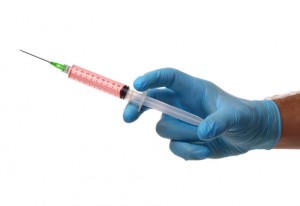 The purpose of anesthesia is to prevent patients from feeling pain or discomfort during surgery or other invasive medical procedures. The two types of anesthesia are local and general. Local anesthesia is used to numb a particular area of the body, while general anesthesia makes the patient temporarily unconscious and unaware.
The purpose of anesthesia is to prevent patients from feeling pain or discomfort during surgery or other invasive medical procedures. The two types of anesthesia are local and general. Local anesthesia is used to numb a particular area of the body, while general anesthesia makes the patient temporarily unconscious and unaware.
General anesthesia poses significant risks to the patient if the wrong dose is administered, if the patient is under the anesthesia for too long or if the patient is not monitored carefully.
Anesthesiologists and nurse anesthetists are trained medical professionals who administer the potentially life-threatening drugs to patients. Like other medical professionals, they sometimes make mistakes.
When anesthesia errors happen, the consequences can be devastating. Those who are affected could suffer permanent brain damage or even death.
Speak With A Knowledgeable Professional
The New York and New Jersey medical malpractice attorneys at Ginarte Gonzalez Winograd L.L.P., represent people who have been injured by anesthesia negligence. To find out what your legal options are, contact the firm now by calling 1-888-GINARTE (1-888-446-2783) or use our online form. Consultations are free. We collect fees only if you win your case.
Causes of Anesthesia Errors
Anesthesiologists have an enormous responsibility to patients. They must talk to patients and their treating physicians to learn about a patient’s medical conditions, allergies and current medications in order to avoid a dangerous drug reaction or a dangerous reaction to the anesthesia.
They must administer the right medication in the right dosage to the right patient. They must carefully monitor the patient while he or she is under the influence of anesthesia and respond promptly to any signs of complications or distress.
Many things can go wrong when a patient is under anesthesia. Some of the common reasons for anesthesia errors include:
- Failure to communicate with patients or attending physicians.
- Overwork and fatigue that cause careless errors.
- Failure to read the patient’s medical chart before administering anesthesia.
- Defective or poorly maintained medical equipment.
- Insufficient training of anesthetists or anesthesiologists.
- Failure to examine the patient thoroughly before anesthesia is administered.
- Failure to get the patient’s informed consent.
- Operating room distractions.
Distractions are very common in operating rooms, and they have a profound impact on the ability of anesthesiologists to do their jobs correctly. Distractions and other common causes of anesthesia errors are just some of the many things that can go wrong with anesthesia.
Types of Anesthesia Errors
Some of the most common anesthesia errors include:
- Administering too much anesthesia (overdose).
- Administering too little anesthesia, resulting in anesthesia awareness (a patient being awake and alert but unable to move or speak during a surgical procedure).
- Airway obstruction.
- Intubation mistakes.
- Allergic reaction to the anesthesia medications.
- Nerve damage due to improper patient positioning.
- Failure to use an electrocardiogram, blood pressure cuff and other devices to carefully monitor the patient.
- Problems with IV lines.
- Poor post-operative care.
- Failure to resuscitate after the surgical procedure.
The type of anesthesia error will determine the consequences to the patient. Some of the most common outcomes of anesthesia mistakes include:
- Asphyxia (oxygen deprivation).
- Damage to the trachea from intubation problems.
- Birth injury.
- Stroke.
- Heart attack.
- Other cardiovascular injury.
- Loss of bodily function.
- Brain damage.
- Spinal cord damage.
- Paralysis.
- Coma.
- Death.
Anesthesia errors are sometimes fatal. Even when a patient survives, the resulting injuries may be permanent and can cause a dramatic decline in function and diminished quality of life.
Get Help from Our NJ and NY Anesthesia Error Lawyers Today
Medical malpractice involving anesthesia negligence is a complicated and complex area of the law. Determining whether an anesthesiologist or nurse anesthetist committed malpractice usually requires a detailed investigation of the patient’s medical records by a qualified and experienced medical malpractice attorney.
If you believe that you have been the victim of an anesthesia error, or if you have lost a family member as a result of an anesthesiologist’s mistakes, now is the time to get legal help. Time is of the essence in a medical malpractice claim. Not only is there a statute of limitations that must be considered, but evidence can be lost and witnesses can disappear over time.
Speak With A Knowledgeable Professional
The New York and New Jersey anesthesia error lawyers at the Ginarte law firm are ready to help you. Contact us today by calling 1-888-GINARTE (1-888-446-2783) or use our online form for a free consultation.
